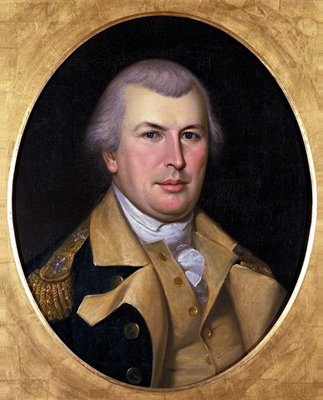So let's get this out of the way: Palin did not misuse the word "refudiate." She used it exactly as it was meant to be used.
Now, if you're going to ask people to do something, as Palin's original tweet pretends to do, you don't want to use a word like "refudiate," because it's not really a word and people might not understand what you'd like them to do. But Palin was not really asking anyone to do anything. There's nothing she actually wants to happen, and she's not really speaking to the "peace loving Muslims" her sentence addresses.
Palin's tweet is doing something else, which politicians have come to do far, far too much: pretending to ask someone to do something the politician doesn't actually want done. Palin wants to make a public show of demanding some people do something, so she can get credit for demanding that thing and so she can blame those people for not doing it. The audience for the statement is not the people she is pretending to address, about whom Palin does not care a wet rag. Her audience is her own following, and she wants to show herself standing up to the dastardly villains of whom she makes her basically fictional demand. It's a posture, not a request.
Palin has to know, somewhere, that Muslims aren't going to repudiate building mosques, the same way Christians never repudiate building churches and Jews never repudiate building synagogues. If you repudiate building mosques, you're really not a Muslim anymore. (And yes, of course, it's actually a Muslim community center and it's actually not at Ground Zero. Palin doesn't give a wet rag for facts, either.) Who is going to say, "That's right, the basic practice of our religion is a terribly insensitive thing to do, inseparable from religious-based terrorism?" Palin knows perfectly well that no one is going to do that. That's why she demanded it.
She's also not interested in actually communicating with "peace loving Muslims." She's interested in defining Muslims as NOT peace loving and in suggesting to her followers that no peace loving Muslims exist. First off, she's addressing "peace loving Muslims" as if the people building a community center in Manhattan, who got permission from their neighbors, were somehow not "peace loving." She's calling on some imaginary alternative group of "peace loving" Muslims to intervene against the villainous community-center builders, who are by implication a bunch of damned warmongers. Her first rhetorical goal is to disguise the peace-loving nature of the community-center builders, who are trying to do public outreach and promote non-violent Islam, and who Palin wants to demonize. (For those of you confused at home, it's like this: the Muslims putting up the buildings in Lower Manhattan are the peace lovers. QED.)
Palin's second rhetorical goal, which is even more insidious, is to define what a "peace loving Muslim" is. What she's implying, of course, is that we'll know the peace loving Muslims when they "refudiate" the mosque. And when nobody does speak out against building a place to peaceably worship their God, it will just go to show that none of the Muslims want peace! They're all confrontational warmongers, who want to put up thirteen-story buildings exactly at the moment in American construction industry badly needs work! How much more devious could they get? (Hint: it's about zoning. The evil plan is always, always about zoning.) See that? Sarah Palin asked the peace lovers to do the peace loving thing and "refudiate" and none of them had the common decency to refudiate anything! They're monsters, I tell you!
Again, if you're asking people to actually do something, it's important to use commonly accepted words to communicate what you want. But when you only want to make a theatrical demand that parties unknown do something that you're secretly hoping won't happen, then using real words doesn't matter. Actually, it kind of helps. If you can get people to buy it, demanding that people do something that actually isn't anything, because there's no such thing as "refudiating," is a kind of insurance policy. If you asked people to denounce or repudiate or deplore something, there's a tiny chance that someone will actually do that and mess up your plan. But if you make a demand that isn't actually in English, demanding they do something that you don't quite describe, then they can't actually do it. And if they try, you can say they did it wrong, because you didn't mean that; you meant refudiate.
If Palin could swing it, she'd make more phony demands using even sillier and less meaningful words. What she would really like to say, on national television is something like: "I think Barack Obama owes it to the American people to schnarfenoggle right away, and to keep schnarfenoggling until this country's frablejam is back oshkenizing again!" Then she'd go on Fox News every seventeen minutes and hammer Obama for not schnarfenoggling enough. And Obama would never be able to schnarfenoggle satisfactorily, because it's Palin who gets to decide what schnarfenoggling actually is.
Calling her stupid misses the point. Her words follow the same malicious logic that Humpty Dumpty uses:
`When I use a word,' Humpty Dumpty said, in rather a scornful tone, `it means just what I choose it to mean -- neither more nor less.'
`The question is,' said Alice, `whether you can make words mean so many different things.'
`The question is,' said Humpty Dumpty, `which is to be master -- that's all.'
Sarah Palin wants to make up the words and define what they mean, however and whenever it suits her. She doesn't intend the rest of us to get a say in it. In her private language, putting up a building and blowing up a building are pretty much the same thing. And whatever else that is, it's not funny.


